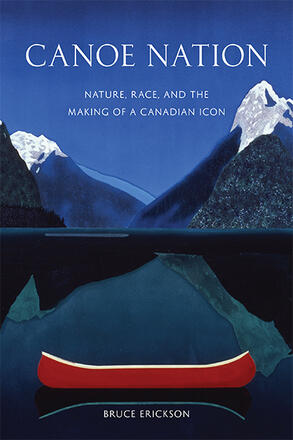
A fascinating examination of an iconic Canadian symbol – the canoe – and its place in our national psyche.
Description
More than an ancient means of transportation and trade, the canoe has come to be a symbol of Canada itself. In Canoe Nation, Bruce Erickson argues that the canoe’s sentimental power has come about through a set of narratives that attempt to legitimize a particular vision of Canada that overvalues the nation’s connection to nature. From Alexander Mackenzie to Grey Owl to Pierre Elliott Trudeau, the canoe authenticates Canada’s reputation as a tolerant, environmentalist nation, even when there is abundant evidence to the contrary. Ultimately, the stories we tell about the canoe need to be understood as moments in the ever-contested field of cultural politics.
Reviews
Canoe nation explores how the canoe is not only an important object of Canada’s understanding of itself as a nation, but also a vital and changing practice that is key to historically specific configurations of economics, landscapes, and modes of governance and citizenship. Ranging from the fur trade to celebrity wilderness paddling and tracing complex connections among economic, colonial, pedagogical, recreational, and environmental desires, Erickson’s brilliantly original analysis shows that the canoe is, quite literally, a vehicle of power in the Canadian national landscape.
- Catriona Sandilands, Faculty of Environmental Studies, York University